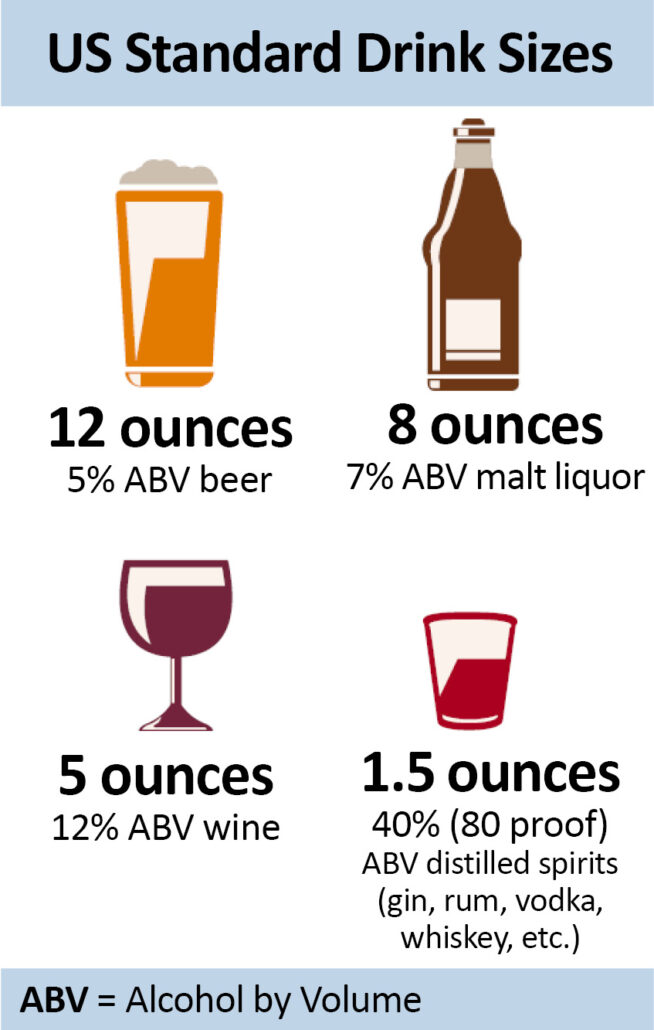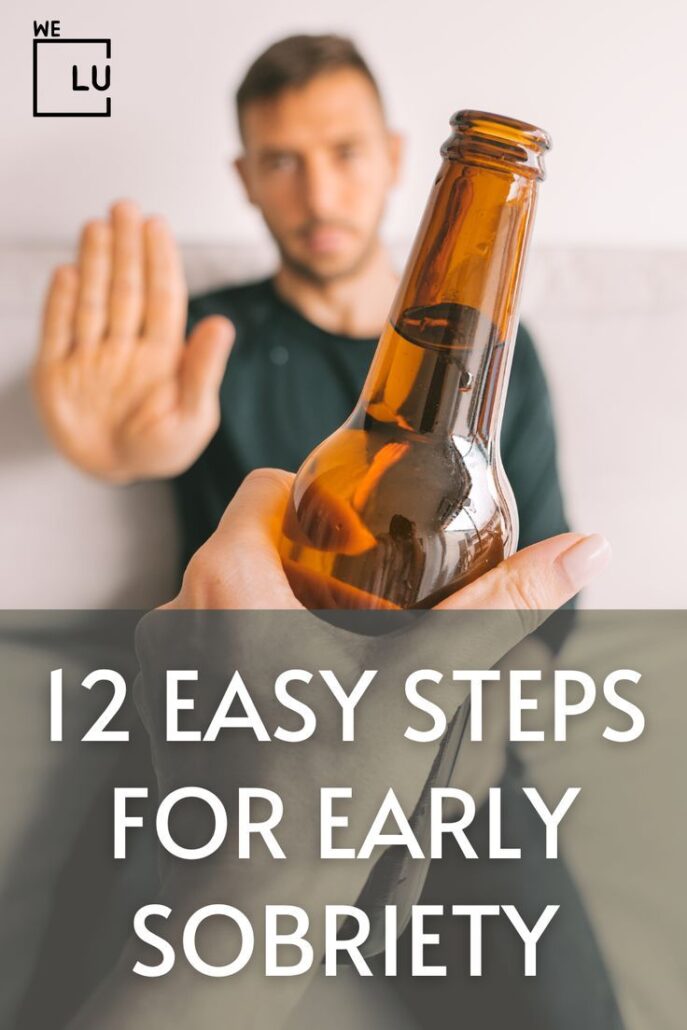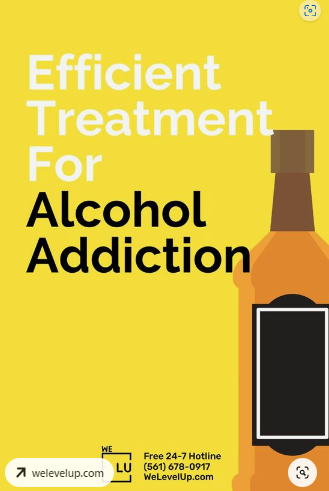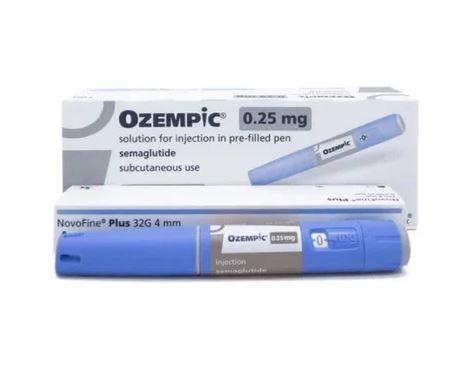Is Alcohol a Stimulant or Depressant?
Alcohol is a widely available and highly addictive substance. It is one of the most popular psychoactive substances, with most American adults consuming alcohol regularly.
The difference between social drinking, binge drinking, alcoholism, or alcohol use disorder can sometimes become blurred, mainly because alcohol is socially acceptable. So, is alcohol a stimulant or depressant?
Is alcohol a depressant or stimulant drug? Alcohol creates different effects. For some people, alcohol creates aggression and anger and causes them to turn into angry drunks. For others, it can result in a calming effect.
How alcohol causes someone to feel is unique to each body type, age, gender, and other factors. Because alcohol can cause so many different reactions, it can be difficult to understand what type of central nervous system reaction is caused.
So, is alcohol a stimulant or depressant? You may wonder whether alcohol is a stimulant or because it can create both types of intoxicating effects. If you drink alcohol, you may experience both stimulating effects and depressant ones.
Is alcohol a depressant or stimulant? According to the National Center for Biotechnology Information (NCBI) [1], alcohol produces both stimulant and depressant effects in humans. These two seemingly opposite effects are central to the understanding of much of the literature on alcohol abuse and misuse.
With continued alcohol consumption, the initial stimulant effects decline, and depressant or sedative effects begin to develop. This is because continued drinking of alcohol can suppress dopamine production while enhancing the effects of gamma-Aminobutyric acid (GABA). GABA is a neurotransmitter that reduces or blocks nerve activity in the brain.
It can be either of these effects that attract someone to alcohol and traps them in the cycle of addiction. Understanding the effect alcohol has on the brain is an important consideration when deciding on a substance addiction treatment center.


Skip To:
Learn More:
- Types of Alcohol – Finding Treatment for Excessive Alcohol Consumption
- How to Sober Up Fast
- When are You Considered an Alcoholic?
- Married to an Alcoholic
- How To Help a Drunk Person?
- Best Alcohol to Drink with UTI?
- Does Drinking Alcohol Decrease Your Immune System?
- Is Alcohol a Drug?
- Is Alcohol a Depressant?
- Is Alcoholism a Disease?
- Alcohol Vs Marijuana

Get Your Life Back
Find Hope & Recovery. Get Safe Comfortable Detox, Addiction Rehab & Mental Health Dual Diagnosis High-Quality Care at the We Level Up Treatment Centers Network.
Hotline (877) 378-4154Alcoholism Statistics
In 2019, of the 85,688 liver disease deaths among individuals ages 12 and older, 43.1 percent involved alcohol. Among males, 53,486 liver disease deaths occurred, and 45.6 percent involved alcohol. Among females, 32,202 liver disease deaths occurred, and 39.0 percent involved alcohol.
85 %
According to the 2019 National Survey on Drug Use and Health (NSDUH), 85.6 percent of people ages 18 and older reported that they drank alcohol at some point in their lifetime.
Source: NIAAA
7.3 %
According to the 2019 NSDUH, about 7.3 percent of adults ages 18 and older who had alcohol use disorder (AUD) in the past year received any treatment in the past year.
Source: NIAAA
95,000
An estimated 95,000 people (approximately 68,000 men and 27,000 women) die from alcohol-related causes annually.
Source: NIAAA
Alcohol Facts
What is Alcohol?
The chemical name ethanol sometimes refers to alcohol, is a depressant drug that is the active ingredient in drinks such as beer, wine, and distilled spirits (hard liquor).
What is its origin?
The earliest known evidence comes from 7,000 BCE in China, where residue in clay pots has revealed that people were making an alcoholic beverage from fermented rice, millet, grapes, and honey.
What are common street names?
Many people have heard of the names “booze,” “brew,” and “cold one” to describe alcohol, specifically beer. Some other common street names and nicknames for alcohol include:
- Juice
- Hard stuff
- Sauce
- Hooch
- Moonshine
- Vino
- Draft
- Suds
- Liquid bread
- Oats soda
What are common scientific names?
Pronunciation/ˈɛθənɒl/ Ethanol
Other Names of Alcohol
- Absolute alcohol
- Alcohol (USP)
- Ethanol (JAN)
- Ethylic alcohol
- EtOH
- Ethyl alcohol
- Ethyl hydrate
- Ethyl hydroxide
- Ethylol
- Grain alcohol
- Hydroxyethane
- Methylcarbinol
Legal status: US: Unscheduled
Routes of administration Common: by mouth
Uncommon: suppository, inhalation, insufflation, injection
What Type of Drug is Alcohol?
- Analgesic
- Depressants
- Sedatives; Anxiolytics
- Euphoriants
- GABAA receptor positive modulators
What is its effect on the body?
Physiological effects of oxycodone include:
- Pain relief, sedation, respiratory depression,
constipation, papillary constriction, and cough
suppression. - Extended or chronic use of oxycodone
containing acetaminophen may cause severe liver
damage
Pharmacokinetic Data
Bioavailability: 80%+
Protein binding: Weakly or not at all
Metabolism: Liver (90%):
• Alcohol dehydrogenase
• MEOS (CYP2E1)
Metabolites Acetaldehyde; Acetate; Acetyl-CoA; Carbon dioxide; Water; Ethyl glucuronide; Ethyl sulfate
Onset of action Peak concentrations:
• Range: 30–90 minutes
• Mean: 45–60 minutes
• Fasting: 30 minutes
Elimination half-life Constant-rate elimination at typical concentrations:
• Range: 10–34 mg/dL/hour
• Mean (men): 15 mg/dL/hour
• Mean (women): 18 mg/dL/hour
At very high concentrations (t1/2): 4.0–4.5 hours
Duration of action 6–16 hours (amount of time that levels are detectable)
Excretion• Major: metabolism (into carbon dioxide and water)
• Minor: urine, breath, sweat (5–10%)
What are Stimulants?
Stimulants vary from mild substances like caffeine to much more powerful prescription drugs like amphetamines and illicit drugs such as cocaine and meth. They are called stimulants because they are substances that boost the functioning of the central nervous system (CNS). Stimulants do this by triggering the production of the neurotransmitter dopamine. Dopamine has many functions within the brain, including boosting mood and motivation.
For instance, the brain may release dopamine when we eat or even see the food we crave. This can result in feelings of satisfaction and pleasure. Unfortunately, dopamine can also increase heart rate, body temperature, and blood pressure.
Although some level of dopamine in the brain is vital for our well-being, high levels of dopamine may cause aggression, anxiety, poor impulse control, and risk-taking behavior. While using stimulants may initially produce feelings of well-being, large amounts, and long-term use, which can generate high dopamine levels, can result in anxiety, insomnia, aggression, and paranoia.
Some stimulants may interact with dopamine in a way that their use becomes habit-forming or addicting. Consequently, while they may be involved in producing some positive feelings, stimulants can have a much more serious and often adverse effect on the central nervous system [2].
Common stimulant drugs include:
- ADHD medications like Adderall and Ritalin
- Caffeine
- Nicotine
- Methylphenidate (Concerta, Ritalin)
- Crystal Meth
- Cocaine and 8 ball of coke
- Bath Salts
Get Help. Get Better. Get Your Life Back.
Searching for Accredited Drug & Alcohol Rehab Centers Near You? Or Mental Health Support?
Even if you have failed previously, relapsed, or are in a difficult crisis, we stand ready to support you. Our trusted behavioral health specialists will not give up on you. Call us when you feel ready or want someone to speak to about therapy alternatives to change your life. Even if we cannot assist you, we will lead you wherever you can get support. There is no obligation. Call our hotline today.
FREE Addiction Hotline – Call 24/7Why is Alcohol a Stimulant?
The most commonly reported stimulant effects of alcohol are:
- Feelings of increased energy
- Increased heart rate
- Rapid respiration
- Feelings of aggression
- Increased confidence
Is alcohol a stimulant or depressant? Alcohol can reduce the quality of sleep a person gets, similar to what stimulant does. Even though drinking alcohol can make someone feel tired and sleepy, drinking before bed leads to fewer hours of restorative sleep, frequent bathroom trips, interrupted circadian rhythms, and breathing problems. Moreover, people who suffer from alcoholism often encounter the symptoms of insomnia.
While these effects can be seen in anyone drinking alcohol, they tend to show more strongly in men than women. However, the reverse is also true; women tend to experience the depressant effects of alcohol more than men.
Dangers of Stimulants and Depressants
Both depressants and stimulants are dangerous for different reasons, and alcohol produces both stimulant and sedating effects in humans.
Stimulants
- Boost the systems in the body, basically pushing the body into overdrive.
- Having higher blood pressure and an increased heart rate can put unnecessary strain on the body.
- Stimulant drug overdose can cause heart attacks, arrhythmias, and other problems by overworking the organs and causing heart attacks and seizures.
Depressants
- It slows the body’s processes down in certain cases to the point that breathing and heart activity stops.
- During a depressant substance overdose, the body’s automatic processes, like respiration, and heart rate, start to slow down and eventually stop altogether. For obvious reasons, this is extremely dangerous and often life-threatening.
Examples of depressant drugs include:
- Opioids such as heroin, morphine, codeine, and hydrocodone
- Barbiturate medications
- Benzodiazepines like Xanax, Klonopin, and Ativan
Mixing Stimulants and Depressants
Combining both is dangerous. While some people mix uppers and downers, thinking it balances the negative effects of each, it actually increases the risks of both.
First-class Facilities & Amenities
World-class High-Quality Addiction & Mental Health Rehabilitation Treatment
Rehab Centers TourRenowned Addiction Centers. Serene Private Facilities. Inpatient rehab programs vary.
Addiction Helpline (877) 378-4154Proven recovery success experience, backed by a Team w/ History of:
15+
Years of Unified Experience
100s
5-Star Reviews Across Our Centers
10K
Recovery Success Stories Across Our Network
- Low Patient to Therapist Ratio
- Onsite Medical Detox Center
- Comprehensive Dual-Diagnosis Treatment
- Complimentary Family & Alumni Programs
- Coaching, Recovery & Personal Development Events
Dangers of Drinking Alcohol
Alcohol truly becomes dangerous when someone drinks excessively or when someone experiences alcohol poisoning. If someone is not an alcoholic, drinking a glass of wine one night a week with dinner is not usually going to cause problems. However, if someone is an alcoholic or drinks a bottle of wine each night for weeks or months, this will result in damage that may not be able to correct. If someone drinks too much, they could risk alcohol poisoning as well. Too much drinking causes the body to shut down before it can metabolize or process the alcohol.
Here are some common symptoms of alcohol poisoning:
- Vomiting in excess
- Bouts with severe confusion
- Prolonged breaths (under eight during one minute)
- Skin that begins to turn a pale gray or blue color
- Passing out or the inability to remain conscious
- Seizures
- Death
If anyone ever has these symptoms, calling an ambulance immediately is necessary. If the individual does not get to a medical facility quickly, the alcohol could slow their body down so that it stops functioning altogether.

World-class, Accredited, 5-Star Reviewed, Effective Addiction & Mental Health Programs. Complete Behavioral Health Inpatient Rehab, Detox plus Co-occuring Disorders Therapy.
CALL (877) 378-4154End the Addiction Pain. End the Emotional Rollercoaster. Get Your Life Back. Start Drug, Alcohol & Dual Diagnosis Mental Health Treatment Now. Get Free No-obligation Guidance by Substance Abuse Specialists Who Understand Addiction & Mental Health Recovery & Know How to Help.
Mixing Alcohol and Stimulants
Combining stimulant drugs and alcohol is never a good idea, whether it’s prescription or illegal stimulants. Alcohol functions as both central nervous system depressants and stimulants. While alcohol does have some stimulant effects, it’s scientifically classified as a depressant. A person will typically feel the stimulant effects at a BAC (blood alcohol concentration) of under 0.05 mg/l. But once they go over 0.08mg/l, the depressant effects will take over.
Due to the effect, the side effects of both substances can be increased rather than canceling each other out. In addition, the use of alcohol can also enhance the concentration of drugs in the system of the person, which makes it more likely they will overdose. Specific risks of mixing alcohol and stimulants include:
Alcohol and ADHD Medications
When alcohol is combined with a stimulant such as amphetamine, it can cause the person to consume more alcohol than normal because the stimulant is masking the effects of intoxication. The result can be alcohol poisoning and drug overdose. Combining alcohol with ADHD medications can also make the individual more likely to experience heart problems, stroke, or seizures. Even the mild symptoms of mixing alcohol with prescription stimulants can include nausea, vomiting, and dizziness.
Alcohol and Cocaine
Cocaine and alcohol are an all-too-common combination. Individuals may mix alcohol and cocaine to increase their high or to help them come down from the stimulant effects of cocaine. However, combining alcohol and cocaine makes the risk of sudden death twenty times greater than it is with the use of either substance alone. In addition, cocaine and alcohol used together can increase the chances of violent behavior, and it’s an unpredictable combination that can affect someone differently every time they use it.
According to the Substance Abuse and Mental Health Service Administration (SAMHSA), researchers have established that cocaethylene, the ethyl ester of benzoylecgonine, forms in the liver when using alcohol and cocaine together. The individual may experience more intense pleasure than if using either substance alone. Still, they will also be exposed to the combined toxicities of cocaine and the even more potent cocaethylene.
Alcohol and Meth
Methamphetamine or crystal meth may be one of the most dangerous stimulants and drugs there is. After fentanyl, heroin, and cocaine, methamphetamine is the fourth deadliest drug in America. Alcohol is among the most used drugs, plays a large role in many societies and cultures around the world, and greatly impacts public health.
People who use both meth and alcohol simultaneously may drink more alcohol to feel more intoxicated or feel its usual effects. This leads to alcohol toxicity, but there are treatment options to help people overcome co-occurring alcohol and meth disorders.
Meth can cause dental decay damage called Meth mouth, extreme weight loss, skin damage, facial scarring (from picking the skin), heart failure, and psychosis. In addition, when someone combines multiple drugs, known as poly-drug use, they are increasing their odds of suffering fatal overdoses—especially when alcohol is involved.
Experience Transformative Recovery at the We Level Up Treatment Center.
See our authentic success stories. Get inspired. Get the help you deserve.



Start a New Life
Begin with a free call to an addiction & behavioral health treatment advisor. Learn more about our dual-diagnosis programs. The We Level Up treatment center network delivers various recovery programs at each treatment facility. Call to learn more.
- Personalized Care
- Caring Accountable Staff
- World-class Amenities
- Licensed & Accredited
- Renowned w/ 5-Star Reviews
We’ll Call You
Alcoholism Treatment
First and foremost, if you think a loved one is abusing alcohol, you should research the substances and their associated addiction to understand better what you loved one needs. Next, you must plan an intervention to provide your loved ones with options to battle the effects of alcohol addiction in a safe and supportive environment. During this intervention, offer compassion and support instead of judgment. Lastly, show your support throughout the entire treatment process.
In addition, prolonged drug use can have severe physical and psychological effects on you, so it is essential to seek treatment as soon as possible. Inpatient drug rehab offers intensive care that can help you promptly get through the early stages of alcohol withdrawal.
Alcohol Detox
Medical detox is often considered the first stage of treatment. It will help you navigate the complicated alcohol withdrawal but doesn’t address patterns of thought and behavior contributing to drug use. Various treatment approaches and settings can help provide the ongoing support necessary to maintain long-term sobriety after you complete the alcohol detox.
Cravings are very common during alcohol detox and can be challenging to overcome. This often leads to relapse. Constant medical care provided during inpatient treatment helps prevent relapse. Clinicians can give medication and medical expertise to lessen cravings and withdrawal symptoms.
Inpatient Alcohol Rehab
There isn’t one treatment approach or style that will suit everyone. Treatment should speak to the needs of the individual. Inpatient rehab and addiction treatment aren’t just about drug use. the goal is to help the patient stop using alcohol and other substances, but alcohol rehab should also focus on the whole person’s needs.
Addiction is a complex but treatable disease that affects brain function and behavior. When someone or their family is considering different treatment facilities, they should account for the complexity of addiction and the needs of the individual. The objective of attending an inpatient rehab center for addiction treatment is to stop using the drug and re-learn how to live a productive life without it.
Following a full medical detox, most people benefit from inpatient rehab. Inpatient drug rehab can last anywhere from 28 days to several months. Patients stay overnight in the rehab facility and participate in intensive treatment programs and therapy. Once someone completes rehab, their addiction treatment team will create an aftercare plan, which may include continuing therapy and participation in a 12-step program like Narcotics Anonymous.
Psychotherapy
Many rehab programs will also have early morning classes or programs. Group sessions occur during inpatient rehab, as do individual therapy sessions. Family therapy may be part of inpatient rehab when it’s feasible. Alternative forms of therapy may be introduced during inpatient rehab, like a holistic therapy program, yoga for addiction recovery, or an addiction treatment massage therapy.
Several different modalities of psychotherapy have been used in the treatment of mental health disorders along with addiction, including:
- Cognitive Behavioral Therapy (CBT) – is an effective treatment that involves changing both the patterns of negative thoughts and the behavioral routines which are affecting the daily life of the depressed person for various forms of depression.
- Dialectical Behavioral Therapy – is a comprehensive mental health and substance abuse treatment program whose ultimate goal is to aid patients in their efforts to build a life worth living. The main goal of DBT is to help a person develop what is referred to as a “clear mind.”
- Solution-focused therapy is an approach interested in solutions that can be quickly implemented with a simple first step leading to further positive consequences.
Dual Diagnosis Treatment
Drug abuse and mental health disorders often co-occur. In many cases, traumatic experiences can result in mental health disorders and substance abuse. Dual-diagnosis rehabilitation treats both of these issues together. The best approach for the treatment of dual diagnosis is an integrated system. This strategy treats both the substance abuse problem and the mental disorder simultaneously. Regardless of which diagnosis (mental health or substance abuse problem) came first, long-term recovery will depend mainly on the treatment for both diseases done by the same team or provider.

Medication Assisted Treatments (MAT)
Medication-Assisted Treatments (MAT) for substance use and mental health disorders are commonly used in conjunction with one another. This includes the use of medications and other medical procedures. During your rehab, the staff from your treatment facility will help you identify what caused your addiction and teach you skills that will help you change your behavior patterns and challenge the negative thoughts that led to your addiction. Sometimes, the pressures and problems in your life lead you to rely on substances to help you forget about them momentarily.
Please, do not try to detox on your own. The detox process can be painful and difficult without medical assistance. However, getting through the detox process is crucial for continued treatment. We Level Up provide proper care with round-the-clock medical staff to assist your recovery through our opioid addiction treatment program medically. So, reclaim your life, and call us to speak with one of our treatment specialists. Our counselors know what you are going through and will answer any of your questions.
Alcohol Rehab Near Me
Alcohol addiction is a condition that can cause major health problems, such as an overdose. We Level Up NJ rehab treatment & detox center can provide you, or someone you love, the tools to recover from this with professional and safe treatment. Feel free to call us to speak with one of our counselors. We can inform you about this condition and clarify issues like alcohol withdrawal symptoms. Our specialists know what you are going through. Please know that each call is private and confidential.
Search We Level Up NJ “Is Alcohol a Stimulant or Depressant” Topics & Resources
Sources:
[1] NCBI – https://pubmed.ncbi.nlm.nih.gov/21560041/
[2] SAMHSA – https://www.samhsa.gov/data/sites/default/files/cbhsq-reports/NSDUHNationalFindingsReport2018/NSDUHNationalFindingsReport2018.pdf /Tag: Alcohol is a Depressant or Stimulant
[4] NIDA – https://www.drugabuse.gov/drug-topics/alcohol / Tag: Is Alcohol a Stimulant or a Depressant /
[5] We Level Up – Addiction Treatment – https://welevelup.com/rehab/addiction-treatment/ Tag: is alcohol a stimulant or depressant
[6] The Risks Associated With Alcohol Use and Alcoholism – PMC (nih.gov) – Rehm J. The risks associated with alcohol use and alcoholism. Alcohol Res Health. 2011;34(2):135-43. PMID: 22330211; PMCID: PMC3307043. / Tag: Is alcohol a stimulant or depressant?
[7] Information about Alcohol – NIH Curriculum Supplement Series – NCBI Bookshelf – National Institutes of Health (US); Biological Sciences Curriculum Study. NIH Curriculum Supplement Series [Internet]. Bethesda (MD): National Institutes of Health (US); 2007. Information about Alcohol. Available from: https://www.ncbi.nlm.nih.gov/books/NBK20360/ Tag: Is alcohol a stimulant or depressant?
[8] Alcohol Use Disorder – StatPearls – NCBI Bookshelf (nih.gov) – Nehring SM, Freeman AM. Alcohol Use Disorder. [Updated 2022 Jul 31]. In: StatPearls [Internet]. Treasure Island (FL): StatPearls Publishing; 2022 Jan-. Available from: https://www.ncbi.nlm.nih.gov/books/NBK436003/ Tag: Is alcohol a stimulant or depressant
[9] Alcohol | National Institute on Drug Abuse (NIDA) (nih.gov) – https://nida.nih.gov/research-topics/alcohol / Tag: is alcohol a stimulant or depressant
[10] Alcohol (who.int) – https://www.who.int/news-room/fact-sheets/detail/alcohol / Tag: is alcohol a stimulant or depressant / is alcohol considered a stimulant or depressant drug





